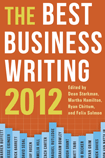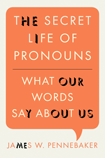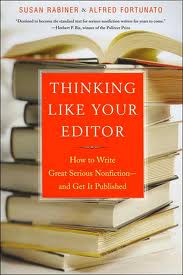Wondering how to write a short book proposal? I get it. Book proposals can be daunting. Why write more than is needed?
This is the longest interview I’ve ever posted on this blog, but when you read it, you’ll know why. There is an art and a science to writing a book proposal. The market is more competitive than ever. And some truly solid tips about writing a great proposal can give you that edge you need in the marketplace.
There’s little room for a proposal that needs work. Agents don’t have the time to fix it. You need to nail it on the first try.
I first met Literary Agent Deirdre Mullane at Harvard Medical School’s CME publishing  course. When one of my clients and I spoke to her, we both knew she was the perfect agent for this client’s book. I also found out that Deirdre had compelling ideas for writing shorter proposals and asked her for an interview. I could have shortened this to typical blog length, but Deirdre provided such valuable and detailed information, I decided to post most of our conversation.
course. When one of my clients and I spoke to her, we both knew she was the perfect agent for this client’s book. I also found out that Deirdre had compelling ideas for writing shorter proposals and asked her for an interview. I could have shortened this to typical blog length, but Deirdre provided such valuable and detailed information, I decided to post most of our conversation.
How to Write a Short Book Proposal
Here it is—so that you can write a short—and successful—book proposal—perhaps even shorter than this blog post!
Why a Short Book Proposal?
Lisa: Deirdre, I’ve heard you say that book proposals are getting shorter, because many acquisitions editors—who are pressed for time anyway—often read proposals on their Kindles, Nooks or ipads. Can you say more about that?

Deirdre: Everything is getting shorter. It’s easier to skim a written proposal, but when it’s being read—or skimmed—on an e-reader, or even a blackberry, it needs to be compressed.
Lisa: As an agent, are you apt to dismiss a proposal if it’s too long?
Deirdre: Sometimes. I recently received an eighty page proposal. It had all the right parts, but I said to myself, “There’s something here but I don’t have the time to work through this.” So, yes, a super-long proposal may turn someone off who might have been interested—both agents and editors.
Tips to Write a Short Book Proposal
Lisa: So, what are some of your tips to a short book proposal?
Deirdre: I used to send the proposal introduction, proposal t of c, sample chapters (intro and one chapter). Now, I tend to collapse the proposal and introduction so it’s almost the same thing. I have authors write the proposal introduction as the introduction to the book, which will cover a great deal of what a traditional proposal used to cover.
Lisa: Do you tend to include an executive summary?

Deirdre: Sometimes. When we collapse the book’s introduction and the proposal, it’s sometimes inappropriate to put certain proposal details into the introduction. The pitch tries to do some of that. Sometimes we put marketing bullets in the pitch. For instance, I wanted to make the case that a book had some timely aspects to it that needed underlining but didn’t fit comfortably in a book introduction.
Lisa: Do you use bullets more? Phrases rather than sentences?
Deirdre: No, I tend to keep to full sentences and use a nice structure/narrative. I do use bullets for the marketing section.
Chapter Summaries or Outlines
Lisa: I’d love your take on chapter summaries versus outlines. Some agents swear that it’s one or the other. What’s your preference?
Deirdre: Summaries—an outline tends to break a chapter apart; a chapter summary brings a chapter together and shows flow/shape/forward momentum.
Lisa: Are your chapter summaries shorter?
Deirdre: Yes. I like to keep them to either one really good full paragraph, possibly two, certainly not a page. When authors send page or page and half chapter summaries, editors won’t read that.

Deirdre: I do like to see some detail, but not every detail. Per chapter, if an author shares one pithy quote or one interesting fact or anecdote that makes it not seem generic, that’s enough. You don’t want every detail or it’s just too much—and too long.
Lisa: With a short proposal, what would you consider too short?
Deirdre: Sometimes in chapter summaries I get fragments—not enough information. It doesn’t tell me what I need to know. I want full sentences that do give me a story-like description. Chapter summaries can’t be shorter than a paragraph.
I do tend to combine the table of contents and chapter summaries, unless the chapter summary section is long.
How Short is Short?
Lisa: So, how short is short?
Deirdre: Certainly with experienced authors, going back to the same publisher of a previous and successful book, we can keep it very short—sometimes three to five pages.
Successfully Short Book Proposals
Lisa: Can you tell us about a few short proposals you’ve sold?
Deirdre: One was a book to Farrar Straus—a cultural history of Naples by historian Stan Pugliese whose previous book with FSG had been nominated for several awards. The book was a good fit but we needed something on the page. The author submitted more of an essay—four pages long and the first three pages were a beautifully written essay about the topic. We included chapter titles with no description—each chapter was a variation on a theme about Naples.
Another book by scientist Caleb Scharf also recently sold to Farrar Straus. The reaction to his first book, which hadn’t yet been published, had been very strong and we were able to sell the second on a short proposal—11 pages.
Lisa: How did those pages break down?
Deirdre: A two and a half page overview, 5-6 pages of chapter summaries: a very brief opening sketch of the first chapter—no sample material.
Lisa: And how about an author starting out fresh—not with a publisher they’ve been with before? When can they write a short, successful proposal?
 Deirdre: If you’ve got a really hot subject and time is of the essence, but you need enough in the proposal to be convincing and the platform to perform. Soldier Dogs by Maria Goodavage is a great example of a successful, short (15 page) proposal. It’s about the dogs used in war, including the dog that helped capture Osama bin Laden. The Times did a photo essay on these dogs. The dog had been in a foreign policy magazine and got five million hits—which seemed extraordinary! I contacted the potential author on a Thursday. By the following Wednesday, the author had a very nice six-figure deal from Dutton and the book went on to become a New York Times bestseller. The proposal was all about her, her platform, the subject and the momentum.
Deirdre: If you’ve got a really hot subject and time is of the essence, but you need enough in the proposal to be convincing and the platform to perform. Soldier Dogs by Maria Goodavage is a great example of a successful, short (15 page) proposal. It’s about the dogs used in war, including the dog that helped capture Osama bin Laden. The Times did a photo essay on these dogs. The dog had been in a foreign policy magazine and got five million hits—which seemed extraordinary! I contacted the potential author on a Thursday. By the following Wednesday, the author had a very nice six-figure deal from Dutton and the book went on to become a New York Times bestseller. The proposal was all about her, her platform, the subject and the momentum.
Lisa: What was in the proposal?
Deirdre: Two pages on her platform—she was a former writer for USA Today and blogs on Dogster.com. We included links to articles on the subject. The overview was six pages long, chapter summaries another five pages, and then included some recent media about the subject and comps. The proposal was very market/platform heavy (60%) and 40% editorial content.
Tips for Specific Book Proposal Sections
Lisa: Let’s look at some specific proposal sections—how about markets for the book?
Deirdre: I keep it short. Many potential clients come to me with generic information about the market. My pet peeves are when authors say there are x number of books on Amazon about the subject. That’s not relevant. My other pet peeve? “There are 3.5 million nurses in America” (for book about nursing). That has no relevance unless the author can reach them because, for example, he/she is president of the American Nursing Association.
 It’s not about the market as a raw bit of data. It’s about how you as the author reach the market. All the rest is of no interest whatsoever, unless the market is something a little less known. For example, arena football. You might say, “Surprisingly there are arena football leagues in every major metropolitan area.” A surprising fact about the market is useful. If the market is trending in one direction—grown x % in x number years—that’s useful. Now, sometimes it’s useful to share secondary markets for the book that aren’t obvious to an editor. But I wouldn’t give that more than a sentence or two.
It’s not about the market as a raw bit of data. It’s about how you as the author reach the market. All the rest is of no interest whatsoever, unless the market is something a little less known. For example, arena football. You might say, “Surprisingly there are arena football leagues in every major metropolitan area.” A surprising fact about the market is useful. If the market is trending in one direction—grown x % in x number years—that’s useful. Now, sometimes it’s useful to share secondary markets for the book that aren’t obvious to an editor. But I wouldn’t give that more than a sentence or two.
Lisa: And how about the marketing plan?
Deirdre: I don’t put any plan out there—it’s pie in the sky. It doesn’t mean anything to say, “When the book is published I will do xyz.” Publishers are interested in what you have done—here’s my list of past speaking engagements all of whom will ask me back. Something speculative is not useful. If an author does a lot of speaking, we might include a twelve month rolling calendar—past six months and next six months.
Lisa: How about the comps section?
Deirdre: Don’t leave off comps—they’re more essential than ever. It’s all about the marketplace. If a publisher can’t position a book or see what it’s like, you’ve got a problem. It needs to fit a category, in general. Or a particular slot. If an editor can’t figure out what it is or who it’s for or who its close relatives are, you have a problem.
Lisa: And the author bio? Is there a way to shorten that?
 Deirdre: All the extraneous stuff gets cut—personal info. It’s all about two things: the author’s relationship to the material and how can he or she can sell it (media, platform, live links (where the author writes). This section is tending to be shorter, too. I’d stick with a half page to three quarters.
Deirdre: All the extraneous stuff gets cut—personal info. It’s all about two things: the author’s relationship to the material and how can he or she can sell it (media, platform, live links (where the author writes). This section is tending to be shorter, too. I’d stick with a half page to three quarters.
How Many Sample Chapters in a Short Book Proposal?
Lisa: Do you suggest two sample chapters or just one?
Deirdre: I usually send just the intro (which is like a proposal) and one sample chapter. I only send without a sample chapter altogether if we’re going to the same house an author already published with. Of course, sometimes even with the same house, it’s a good exercise to write a sample chapter to make sure the author can do this—is there enough material there? Can the author write in this different voice?
Lisa: Any last tips?
Deirdre: Competition is fierce. Title is essential. Move towards shortness. Editors say more and more, “Is this a book I have to have?” Some proposals may hit all the marks and are good but not good enough (it can be function of subject or a question of platform).
Lisa: Do you have a favorite book on how to write a book proposal to recommend to authors?
 Deirdre: I haven’t myself recommended a lot of those in some time. I like Susan Rabiner’s book, Thinking Like Your Editor, since I deal with serious nonfiction.
Deirdre: I haven’t myself recommended a lot of those in some time. I like Susan Rabiner’s book, Thinking Like Your Editor, since I deal with serious nonfiction.
Deirdre Mullane founded Mullane Literary Associates in 2008. She is a publishing executive with more than two decades in the industry as a publicist, editor, publisher, editor, agent and author. She handles primarily serious nonfiction, especially in the areas of history, science, politics, sports, nature/environment, mind/body/spirit, narrative nonfiction and a small list of literary/commercial fiction. “What our clients share is passion, expertise, and a belief that books truly have something indispensable to say about our lives—past, present, and future.”
Get Lisa Tener’s free ebook: 10 Tips to a Book Proposal Publishers Will Love.



Well, now that I’ve submitted a 75-page proposal, complete with three chapters, I’ll shorten it if and when another agent wants to see one. This fine interview (not too long, by the way)is appreciated, printed out and already marked with a highlighter.
Two chapters should be enough, but if it’s a memoir, you may actually want more depending on length of chapters (50 pages is pretty standard for memoir–and then they want to see the rest right away if they are interested).
The length being suggested actually fits well with my proposal, which is for a professional-market publisher. The one section that is longer is mine is “about the author”–maybe I think I’m too important!
This is a wonderful interview and it didn’t seem that long as I was reading it. Great content wins out.
After reading this blog I went to my proposal and realized the author section was unnecessarily and disproportionately long. I revised it without losing the heart – cutting something out feels hard at first but then I can see the improvement. So your blog had a direct effect on me today! Thank you, Lisa.
Judy, that’s great. While shortening anything can be challenging, I often love the problem-solving aspect of tightening my writing. Glad it worked for you and good luck with your proposals, Judy, Judith and Alex.
Dear Lisa,
Thank you for this really helpful interview which landed in my in-box just as I was writing my proposal. As a first time writer I am learning the ropes and the information you share is always gratefully received. I also love synchronicity 🙂
Wishing you a lovely day.
Alex
Thanks Lisa,
I don’t understand much about proposals yet, but this clarified some of the mystique about all the hard work that goes on behind the scenes. I belong to a writing club and they had us bring in our book proposals to critique. Only one person brought his and it was only three paragraphs.
(Newbie) Annette
Wow, three paragraphs would be a short proposal! I don’t think even a bestselling author could get away with that in most cases! Publishers want a real sense of the book including information on the market, how it compares to other books on the market, features, book concept, hook, a marketing plan, chapter outlines, sample chapter(s)…I would get a good book on proposals, like Mike Larsen’s How to write a book proposal (my personal favorite) and use that for your template.
Minor question– single or double-spaced?
Double spaced. No extra spaces between paragraphs, either.
Thank you Lisa,
I’ve been asked to submit a book proposal by a potential publisher, but had no idea what that would be. This interview was quite helpful. It took me about 4 years to finish my book, and now they wanted a book proposal. The only thing is my book is written as a journal, so I’m sure if I should approach the proposal from a fiction aspect or that of a memoir. Again, I appreciate your sharing of this interview.
Hi Roger. That’s very exciting. Congratulations to be invited to submit. I would be sure to write a proposal that addresses all the questions publishers have:
How does your book fit in with competing and complementary books on the subject?
What are the markets for the book?
What is your platform and how big is it? (how many people do you currently reach through speaking, social media, other media, mailing list, blog, etc.)
How will you market and promote the book?
Fiction would be if you made things up. If not, it’s a memoir. It sounds like memoir to me.
Here are some posts that should be very helpful to you:
How to Write a Book Proposal
The New Short Book Proposal (on the Huffington Post)
I also recommend Michael Larsen’s book How to Write a Book Proposal. Good luck and let me know if I can be of help.